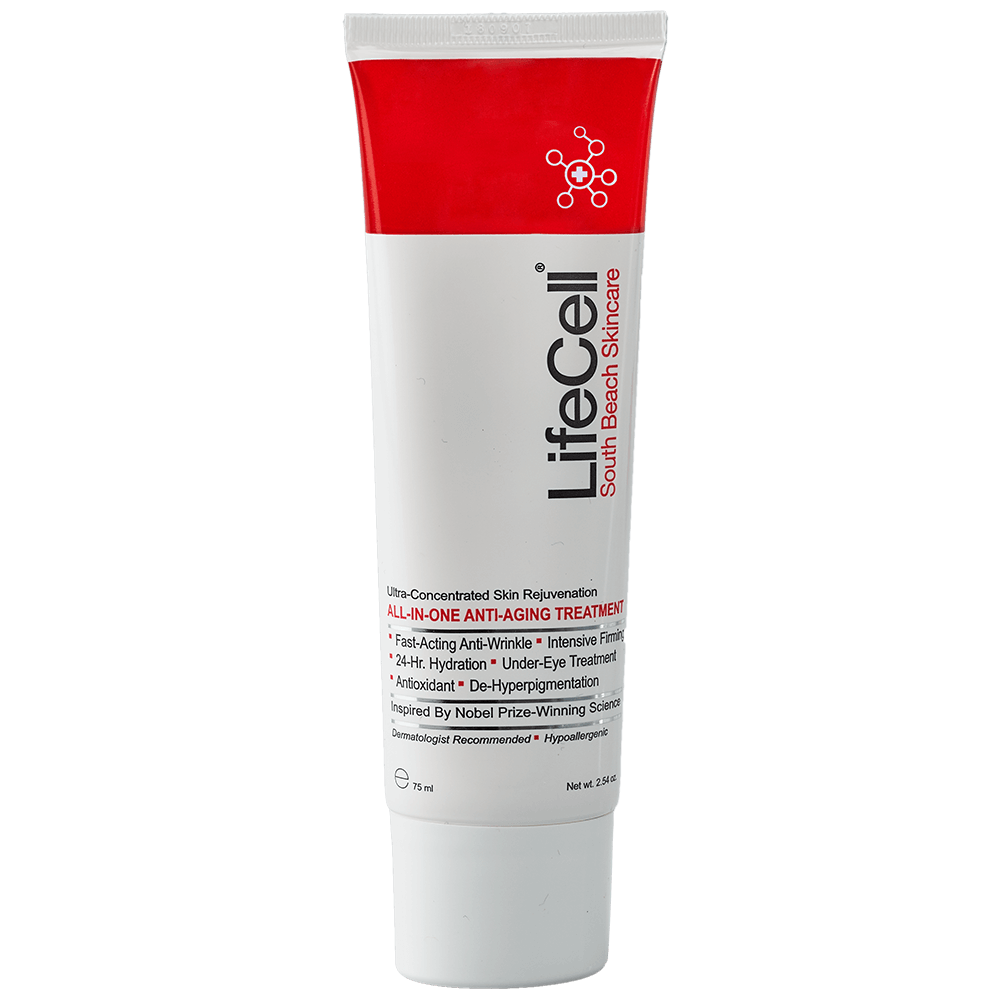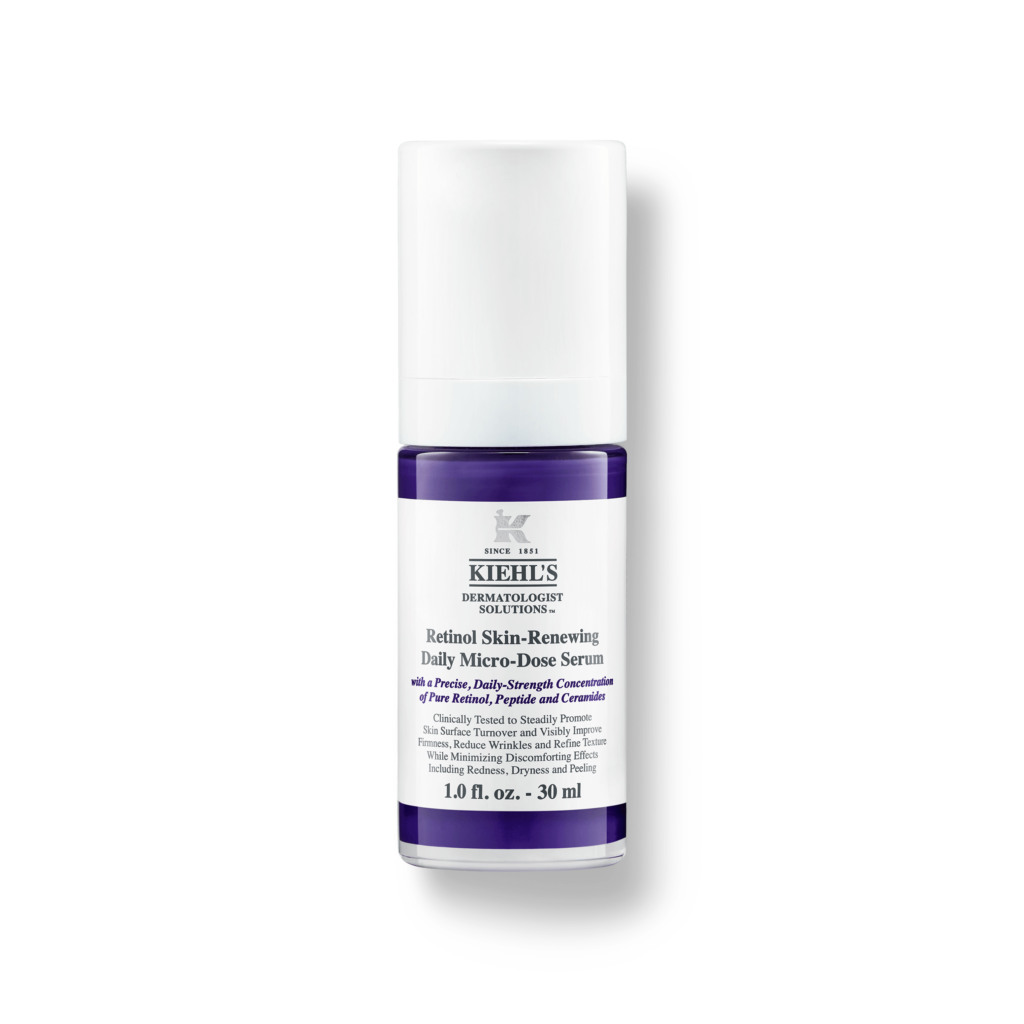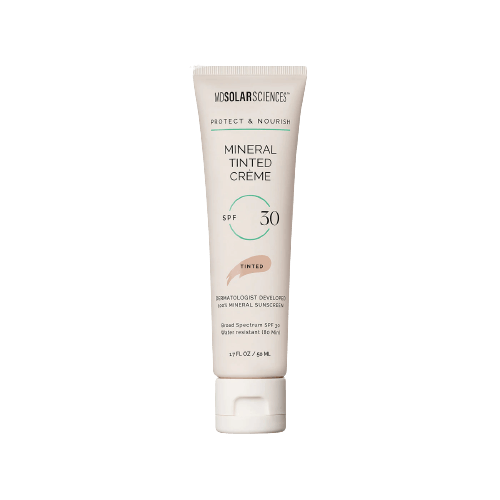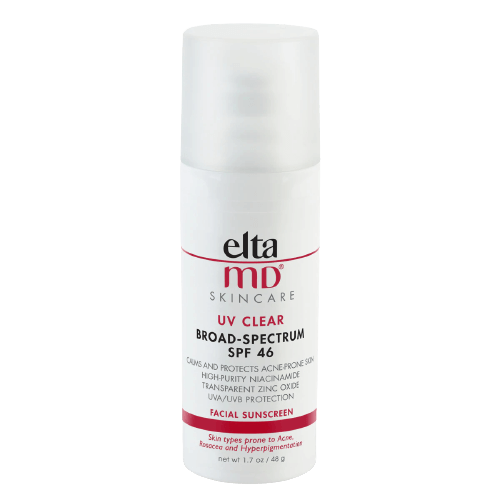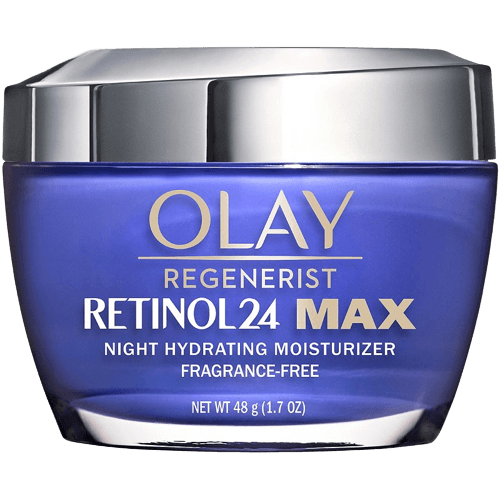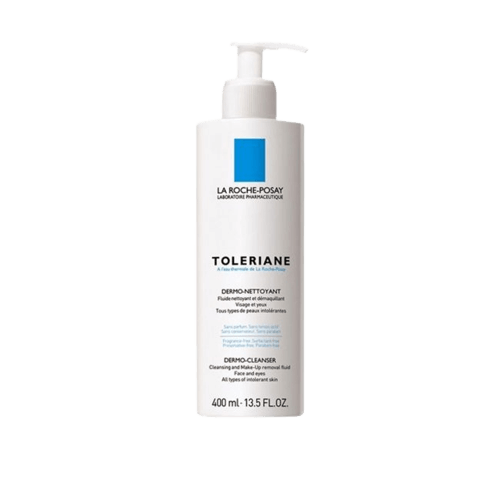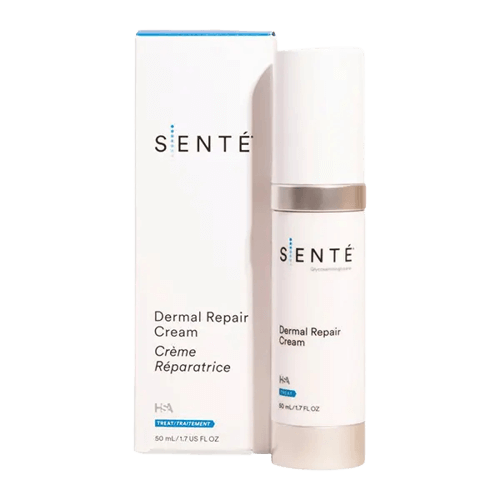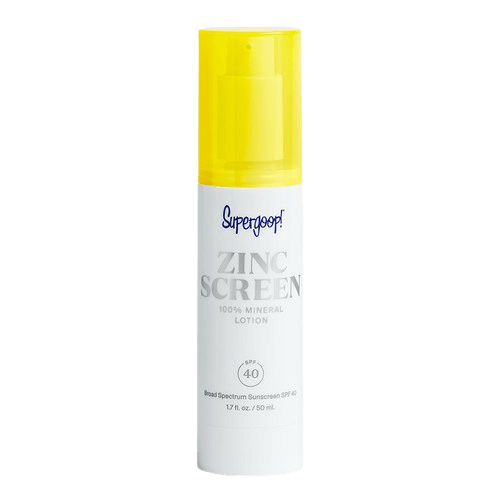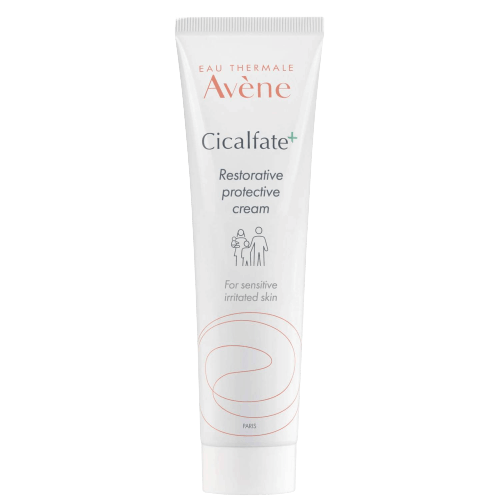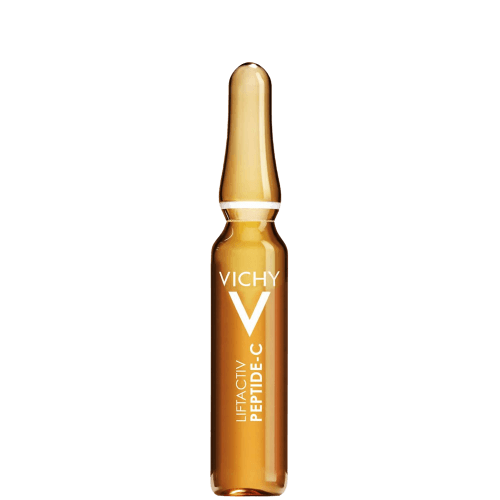If you have rosacea-prone skin, then you’ll be all-too-familiar with the difficulties involved in finding new skincare products that don’t cause flare-ups. There’s always an element of trial and error to the process, and while this is understandable, there’s nothing fun about the dread that comes from wondering whether or not a new product is going to trigger your rosacea symptoms.
So, we’ve decided to help by taking away some of the guesswork. Below, you’ll find 11 anti-aging products that have been designed with rosacea-prone skin in mind. Whether you’re trying to hydrate and plump up your skin, do away with those fine lines and wrinkles, or brighten up an uneven skin tone, these products will not only help you in your anti-aging journey, but they’ll also soothe and calm your skin to keep the symptoms of rosacea at bay.
[ninja_tables id=”18802″]
But before we do that, let’s know what rosacea is about. Keep reading.
Contents
- What Is Rosacea?
- Best Anti-aging Products for Rosacea
- The Best Anti-Wrinkle Cream to Add to Your Skin Care Routine: LifeCell All-in-One Skin-Tightening Treatment
- Best Retinol Formula That Doesn’t Cause Irritation: Kiehls Micro-Dose Anti-Aging Retinol Serum with Ceramides and Peptide
- Best Tinted Product for Instantly Masking Redness, Inflammation & Breakouts: MDSolarSciences Mineral Tinted Crème SPF 30 Sunscreen
- Best Sunscreen Formula for Improving Skin Condition & Health: EltaMD UV Clear Facial Sunscreen Broad-Spectrum SPF 46 Face Sunscreen for Sensitive Skin
- Best Night Cream for Rosacea, Wrinkles & Discoloration: Olay Retinol24 MAX Night Moisturizer
- Top Dermatologist Recommended Cleanser for People with an Inflammatory Skin Condition: La Roche-Posay Toleriane Dermo-Cleanser
- Best Hydrating Moisturizer for Treating Symptoms of Dryness: Sente Dermal Repair Cream
- Best Face Lotion for Rosacea: Supergoop! Zincscreen 100% Mineral Lotion SPF 40
- Best Moisturizer Brand for Providing Skin Healing Benefits: Avene Cicalfate+ Restorative Protective Cream
- Best Ampoule for Treating Fine Lines, Wrinkles & Loss of Firmness: Vichy LiftActiv Peptide-C Ampoule Serum
- What Should You Look For When Choosing the Best Anti-Aging Products for Rosacea Sufferers?
- FAQ
- Conclusion
What Is Rosacea?
Rosacea is a constantly recurring inflammatory skin condition mainly identified by redness (dilated blood vessels) and acne-like lesions that affect the face.
However, the major causes of rosacea are a little harder to determine. Some experts suggest that factors such as worn-out skin barrier, UV sun exposure, abnormal immune response, and even demodex (mites) can be causes of rosacea.
At the end of the day, rosacea is another sensitive skin type. In most cases, it often occurs in individuals in their thirty (30) – sixty years age group. But that doesn’t change the fact that there are possibilities of a person developing it at any age.
In addition, many might not be aware that there are different types of rosacea. Every kind of rosacea comes with its symptoms. Also, there are chances that one can have more than one type of rosacea. So, below are the different types of rosacea.
Type 1
This type of rosacea is also known as Erythematotelangiectatic Rosacea (ETR). It is characterized by the display of persistent flushing, which often serves as the first and most common sign of the disease. There is also the presence of visible blood vessels (dilated capillaries).
Symptoms of Type 1(ETR)
- Burning and stinging skin
- Swollen skin
- Redness and flushing at the center of your face
- Rough, dry, and scaly skin
- Visible dilated capillaries
- Sensitive skin
Type 2
This is regarded as the most common and recognizable type of rosacea. It is named Papulopustular Rosacea (Acne Rosacea). It’s a type of rosacea associated with acne-like breakouts because of the red spots (papules) and white-headed spots (pustules). These spots are mostly located at the cheeks, chin, nose, and center of the face. In addition, it often affects middle-aged women.
Symptoms of Type 2
- Oily skin
- Raised patches of skin (plaques)
- Acne-like breakouts
- Very red skin
- Visibly broken blood vessels
- Sensitive skin
Type 3
This is another type of rosacea known as Phymatous Rosacea. It is a rare form characterized by thickened, firm areas superimposed on the redness region.
People with Type 3 rosacea often develop a condition known as Rhinophyma. This is a condition where the nose area becomes rough and bulbous. This is because the inflammation process usually leads to fibrosis.
In addition, Phymatous rosacea is more commonly seen in men than women and is sometimes accompanied by another type of rosacea.
Although this is one of the most severe types of rosacea, fortunately, it is less common than other rosacea.
Symptoms of Type 3
- Presence of large pores
- Thick skin on the nose
- Dilated capillaries
- Bumpy skin texture
Type 4
Lastly, type 4 is also known as Ocular Rosacea. This type of rosacea affects only the eyes and eye area. It causes inflammation and redness on the eyelids, around and inside the eyes.
Symptoms of Type 4
- Blurred vision
- Photosensitivity
- Burning and irritated sensation in the eyes
- Cysts on eyes
- Watery and bloodshot eyes
- Gritty eyes
- Eye dryness
- Visibly broken blood vessels on eyelids
Best Anti-aging Products for Rosacea
Below are some of the best Anti-aging Products rosacea sufferers can use to soothe their skin.
The Best Anti-Wrinkle Cream to Add to Your Skin Care Routine: LifeCell All-in-One Skin-Tightening Treatment
The LifeCell All-in-One Skin-Tightening Treatment is, without a doubt, one of our all-time favorite anti-aging products. Why? Because it’s brimming with some of the most potent ingredients in the industry. Two forms of vitamin A, two forms of vitamin C, plus a long list of botanical extracts – this formula gives your skin everything that it needs to look firmer, tighter, and younger.
How does it work for people with rosacea? According to reviews, very well. Safe for all skin types, including sensitive skin, this product is paraben-free, fragrance-free, hypoallergenic, and dermatologist-tested. It’s loaded with a number of anti-inflammatory compounds, from shea butter to vitamin E, to keep rosacea sufferers looking their very best.
Pros:
- A powerful anti-aging formula that’s gentle enough for sensitive skin types
- Provides both instant and long-term skin-smoothing results
Cons:
- Not designed specifically for rosacea patients (yet they do very well with it)
Best Retinol Formula That Doesn’t Cause Irritation: Kiehls Micro-Dose Anti-Aging Retinol Serum with Ceramides and Peptide
Traditionally, retinol was a flat-out no-go for rosacea skin. However, new technologies mean that skincare brands can now offer retinol in forms that don’t cause a rosacea flare-up, which is exactly what the Kiehl’s Micro-Dose Anti-Aging Retinol Serum does. This serum delivers retinol to skin cells slowly and steadily, meaning that not only is it safe for people with rosacea, but even those with other skin types can start using this serum nightly, rather than having to slowly introduce it to their skincare routine.
In addition to retinol, which takes care of the anti-aging aspect, this formula also includes ceramides to strengthen the skin barrier, something that’s very important when dealing with rosacea. It’s also formulated with peptides, which help to keep the skin moisturized while speeding up collagen production.
Pros:
- A micro-dose serum that delivers retinol in a way that’s non-irritating to rosacea skin
- A good formula for hydrating the skin
Cons:
- Has quite a long ingredient list, meaning that there’s more chance of sensitive skin experiencing a reaction to the product
Best Tinted Product for Instantly Masking Redness, Inflammation & Breakouts: MDSolarSciences Mineral Tinted Crème SPF 30 Sunscreen
Sometimes, rosacea flares up unexpectedly. If you’re looking for a way to quickly cover over that facial redness, then the MDSolarSciences Mineral Tinted Creme SPF 30 Sunscreen is what you need. It boasts a sheer and airy tint that manages to effortlessly blend into all skin tones, giving you real-life filter-like results.
This fragrance-free formula is jam-packed with skin-soothing compounds too. From green tea extract to vitamin E to pomegranate extract, these ingredients not only come with anti-inflammatory properties that calm rosacea skin, but they’re also filled with antioxidants that boost collagen synthesis to produce anti-aging effects. The sunscreen element is 100% mineral-based (zinc oxide and titanium dioxide), so you won’t need to worry about SPF chemicals irritating rosacea skin.
Pros:
- A tinted formula that immediately masks redness and inflammation
- Offers SPF 30 to protect skin from sun damage
- Formulated with anti-aging ingredients to boost collagen production and firm up the skin
Cons:
- Needs to be reapplied every 2 hours, which can make it a bit expensive if you’re using it daily
Best Sunscreen Formula for Improving Skin Condition & Health: EltaMD UV Clear Facial Sunscreen Broad-Spectrum SPF 46 Face Sunscreen for Sensitive Skin
Sun exposure is the primary trigger for rosacea flare-ups – just a few minutes in the sun could lead to those dreaded symptoms making an appearance. So, while dermatologists usually recommend an SPF 30 sunscreen for other skin types, people with rosacea may feel more comfortable with something stronger, like the EltaMD UV Clear Facial Sunscreen Broad-Spectrum SPF 46 Face Sunscreen.
With an SPF of 46, this formula goes above and beyond when it comes to shielding rosacea skin from sun exposure. It’s loaded with hydrating ingredients, such as hyaluronic acid, niacinamide, and lactic acid, all of which will also help with the acne rosacea can sometimes cause. Even better, while this cream is lightweight enough to be worn under makeup, you can save yourself a step in your beauty routine by opting for the tinted version of the exact same formula!
Pros:
- This vegan, fragrance-free, and paraben-free cream provides SPF 46 to protect the skin from UV rays
- Contains ingredients that help with hydration, anti-aging, and inflammation
- Choose between tinted and non-tinted versions
Cons:
- Some people find that this formula has the tendency to turn flaky if it’s applied over the top of a moisturizer
Best Night Cream for Rosacea, Wrinkles & Discoloration: Olay Retinol24 MAX Night Moisturizer
A good night cream is a must for people with rosacea, and the Olay Retinol24 MAX Night Moisturizer is one of our top picks. Why? Because this fragrance-free formula focuses on hydration, which is exactly what your skin needs while you’re asleep. This is when it requires the most amount of moisture for regeneration and repair, which this cream provides.
The retinol in this blend is combined with niacinamide to counter any irritation, which also helps to even out the skin tone and lighten dark spots. According to the brand’s clinical studies, this cream has the potential to truly transform your appearance in just 28 days, and reviews show that there’s plenty of truth behind this claim.
Pros:
- Contains retinol and retinyl palmitate to really enhance the anti-aging results that this product provides
- Doesn’t contain fragrance or dyes
Cons:
- The two forms of retinol in this product could end up irritating sensitive skin
- This cream contains parabens and alcohol, which could potentially trigger rosacea symptoms
Top Dermatologist Recommended Cleanser for People with an Inflammatory Skin Condition: La Roche-Posay Toleriane Dermo-Cleanser
When it comes to the best anti-aging products, people usually focus on serums and creams, but cleansers deserve just as much attention. They form what is arguably the most important step in a skincare routine – fail to cleanse properly and the rest of the products that you apply won’t be able to work to their full potential. Of course, finding a gentle cleanser that doesn’t leave rosacea skin feeling stripped, dry, and vulnerable isn’t easy, which is why so many rosacea patients flock to the La-Roche Posay Toleriane Dermo-Cleanser.
Formulated specifically for sensitive and reactive skin, this cleansing milk is designed to be applied to the face and then wiped, rather than washed, off with a cotton pad. Its whole focus is on keeping things simple and stress-free for the skin, which is helped by the glycerin and the La Roche-Posay thermal spring water that’s added to this formula.
Pros:
- Designed with rosacea patients and sensitive skin in mind – it has even been approved by the British Allergy Foundation
- Effectively cleanses the skin of impurities and makeup without stripping it of its protective oils
Cons:
- Doesn’t contain any anti-aging ingredients (although it’s still a crucial part of any anti-aging skin care routine!)
Best Hydrating Moisturizer for Treating Symptoms of Dryness: Sente Dermal Repair Cream
Around half of all rosacea patients experience dry skin as a symptom [1], and a hydrating moisturizer is a perfect way to alleviate the flakiness, along with the accompanying pustules and papules. For this, the Sente Dermal Repair Cream would be our top choice. This is a formula that delivers deep hydration to skin cells, which not only plumps and softens the dryness, but gives you smooth skin to boot.
Since this formula is also designed to repair the skin barrier, it’s ideal for people with rosacea. It contains a patented molecule called Heparan Sulfate Analog, which stimulates the skin’s immune system to better deal with inflammation. This non-comedogenic formula is also filled with green tea and vitamin E, both of which are always good to see in anti-aging products.
Pros:
- A very hydrating facial moisturizer that’s great for treating dry skin
- Ideal for people with rosacea because of how it soothes and restores the skin’s barrier
Cons:
- People with oily skin types may find this cream to be too rich
Best Face Lotion for Rosacea: Supergoop! Zincscreen 100% Mineral Lotion SPF 40
While some rosacea patients have dryness as a symptom, others fall to the other end of the spectrum – increased oil production, meaning greasiness and excess shine. If you can relate, you need a lightweight cream that’ll blend effortlessly into your skin while still providing protection from UV rays, which is exactly why we love the Supergoop! Zincscreen 100% Mineral Lotion SPF 40.
This anti-aging product is packed full of natural extracts, including blueberry, winter cherry, and coconut fruit. It also happens to be a mineral sunscreen, meaning that it’ll protect your skin from UV rays without breaking you out.
Pros:
- Offers SPF 40, which is a good amount of sun protection for rosacea skin
- Contains several antioxidant-rich botanical extracts, which is what you need in anti-aging skin care products
Cons:
- Unlikely to be hydrating enough for people with severely dry or dehydrated skin
Best Moisturizer Brand for Providing Skin Healing Benefits: Avene Cicalfate+ Restorative Protective Cream
Many creams promise to restore the skin’s barrier, but few of them actually do so in a noticeable way. So, if this is your main aim, then we’d recommend turning to the Avene Cicalfate+ Restorative Protective Cream. Famed for its healing properties, this cream soothes discomfort immediately after application and then starts to repair and restore sensitive skin after 48 hours of twice-daily use.
Its potency comes down to a very special patented ingredient called C-Restore™, which has been combined with Avene Thermal Spring Water. Together, they produce a “dressing” effect that protects the skin from environmental stressors. While protected, the cream sends replenishing ingredients, such as zinc sulphate and copper sulphate, deep into the skin to work their magic. Pretty clever, right?
Pros:
- Designed specifically for skin that is sensitive, irritated, and weakened, making it ideal for rosacea skin
- A great skin care product for restoring and strengthening the skin
- Gentle enough to be used externally on intimate areas
Cons:
- Focuses more on relief and replenishment, rather than anti-aging
Best Ampoule for Treating Fine Lines, Wrinkles & Loss of Firmness: Vichy LiftActiv Peptide-C Ampoule Serum
We adore ampoules. These specially-sealed, single-use anti-aging products offer the ultimate in potency, and the high-powered active ingredients in the Vichy LiftActiv Peptide-C Ampoule Serum make this silky blend one of our favorites.
This serum is designed to tackle all aspects of skin aging, with a 10% concentration of pure ascorbic acid taking center stage. Combined with both sodium hyaluronate and hyaluronic acid to double its hydrating impact, each glass ampoule contains 1.8ml of product – the perfect dose for packing a punch without irritating sensitive skin types.
Pros:
- Contains an impressive 10% concentration of vitamin C
- Each ampoule dose is individually sealed, which protects its contents from air and light. This allows the ingredients to offer maximum potency each time you use the product
- Helps with a wide range of age-related skin care concerns
Cons:
- May not be rich enough to be used as a standalone anti-aging product on dry skin, but you can combat this by layering a moisturizer over the top
What Should You Look For When Choosing the Best Anti-Aging Products for Rosacea Sufferers?
Searching for a new anti-aging product isn’t easy, no matter your skin type. However, for rosacea sufferers, it’s even more of a challenge, so here are some skin care tips to make the process a little less painful:
- Don’t be afraid to try potent ingredients, such as vitamin A, vitamin C, and ferulic acid, so long as you also use ingredients that will soothe and calm your skin. That said, introduce these ingredients gradually into your skincare routine, rather than immediately opting for daily use.
- Look for formulas that are fragrance-free and paraben-free, as these additives could potentially make your rosacea skin symptoms worse.
- Gentle exfoliation is important for keeping cell renewal at an optimum level. Use mild chemical exfoliants to do this, but limit your exfoliation sessions to once a week.
- UV rays are a nightmare for rosacea skin, so make SPF a priority when shopping for new skin care.
The Best Ingredients for Rosacea
Once you’ve narrowed your options down to a few skin care products that you like the sound of, make sure that they contain some of the following skin-soothing ingredients:
- Hyaluronic acid
- Niacinamide
- Vitamin E
- Green tea extract
- Sunflower seed oil
- Peptides
FAQ
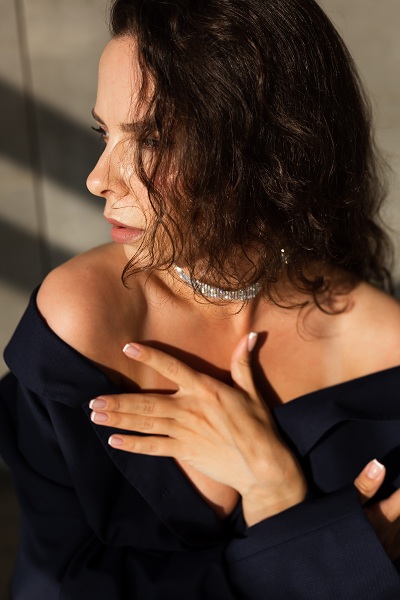
Q: Can you use anti-aging products with rosacea?
Yes, so long as the anti-aging products you’re using have been formulated with sensitive skin types in mind, then they shouldn’t aggravate your rosacea.
Q: Is hyaluronic acid okay for rosacea?
Yes, hyaluronic acid offers up many rosacea skin care benefits.
Q: Can you use retinol if you have rosacea? Is retinol safe for rosacea?
Technically, retinol is safe to be used on rosacea skin, so long as you introduce the ingredient slowly and use a low concentration. While some people with rosacea can use it without a problem, others find that retinol causes a reaction. Unfortunately, you won’t know what your skin thinks of the ingredient until you try it out for yourself.
Q: Does retinol worsen rosacea?
In some cases, retinol helps with rosacea. However, in other cases, rosacea skin symptoms are worsened with the use of retinol – everyone’s skin seems to react very differently.
Q: Which skin care line is best for rosacea?
Any skin care line that doesn’t use parabens, fragrances, dyes, or other harmful ingredients will work well on rosacea skin.
Q: Can you use vitamin C serum with rosacea?
Yes, vitamin C can be an extremely beneficial ingredient to use when you have rosacea.
Q: Is collagen good for rosacea?
Collagen is great for rosacea – it’ll make your skin look firmer and smoother, and brighter.
Q: Does vitamin D make rosacea worse?
Research shows that increased levels of vitamin D could make rosacea worse [2].
Q: What should you not do with rosacea?
If you have rosacea, there are a few common triggers that you should try to avoid. These include drinking hot beverages or alcohol, eating spicy foods, and eating dairy. You should also avoid hot and humid conditions, and try to keep yourself stress-free.
Q: What can dermatologists do for rosacea?
If your rosacea is moderate or severe, your dermatologist may prescribe an oral antibiotic.
Q: How do I choose a good eye cream for rosacea?
If you have rosacea, look for eye creams that contain soothing, anti-inflammatory ingredients, such as aloe vera, chamomile, peptides, ceramides, and vitamin E.
Q: How is ocular rosacea treated?
Ocular rosacea is usually controlled with the use of oral antibiotics.
Q: Is vitamin E good for rosacea?
Yes, vitamin E is a fantastic ingredient to use if you’re suffering from rosacea.
Q: Is azelaic acid good for rosacea?
Yes, azelaic acid has powerful anti-inflammatory properties, making it a great ingredient for soothing the redness associated with rosacea.
Conclusion
While it’s important for everyone to be careful when choosing new skin care products, rosacea sufferers have to be even more selective. Fortunately, these 11 products have your back – whether you pick your favorite or add a combination of the above to your skincare routine, use these proven formulas consistently, and not only will you soon notice your rosacea symptoms reducing, but your skin will start to look firmer, smoother, and younger as well!
[ninja_tables id=”18763″]
References
[1] https://www.rosacea.org/patients/frequently-asked-questions
[2] https://pubmed.ncbi.nlm.nih.gov/23713748/
